Family of Bekkie-Rae Curren-Trinca push to overhaul Victorian Victims Register
Premier Daniel Andrews says he is open to changing how domestic violence victim survivors learn about the release of abusers after a plea from the family of a murdered Warrnambool mum.
Victoria
Don't miss out on the headlines from Victoria. Followed categories will be added to My News.
The Andrews government says it is open to reforming a major flaw in its family violence framework which failed to protect young mum Bekkie-Rae Curren-Trinca.
As revealed by the Herald Sun on Tuesday, Ms Curren-Trinca’s family have called for family violence victims to be alerted when their abusers are freed onto the streets.
Currently, victims are only notified of their abusers’ movements if they opt-in to an alert system.
Premier Daniel Andrews on Tuesday acknowledged more could be done to inform victims about the support measures available, admitting the current framework “might not be as clear as it can be”.
He also said he was open to the prospect of reforming that system to instead provide an opt-out offer.
“That’s part of the important discussion that we should have,” he said on Tuesday.
“I’m happy to look any reform, any reform at all.
“This is a terrible tragedy and we owe it to this family and to the memory of their loved one to try and make the system better.
“Not every victim survivor would want to know (the movements of their abuser), but others, absolutely. That’s why it’s voluntary.
“If there are practical changes we can make then of course we will.”

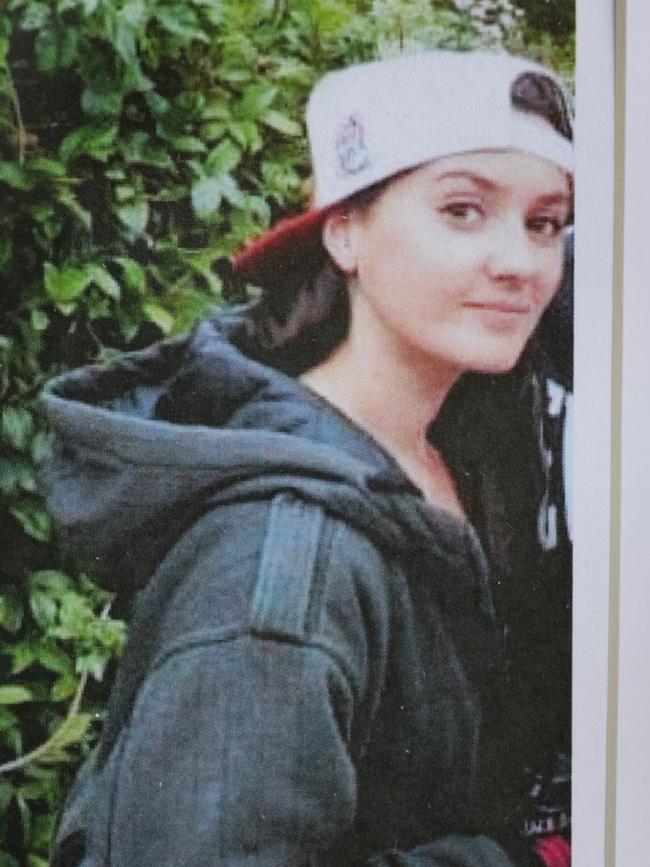
Mr Andrews said he was open to meeting with the family of Ms Curren-Trinca.
“Happy to,” he said.
“If time in my diary is not immediately available, I’m sure that (Victim Support) Minister (Enver) Erdogan would happy to meet, and or (Prevention of Family Violence) Minister (Ros) Spence.”
Demi Trinca, the sister of Ms Curren Trinca, on Tuesday told the Herald Sun she wanted to meet with Mr Andrews to push for a change she believes would have kept her sister alive.
“To say some victims don’t want information about their perpetrator because it might frighten them is ridiculous,” she said.
“What’s more frightening is seeing your perpetrator down the street or them rocking up at your house without being informed they are out of prison.”
Ms Trinca has penned a letter to Mr Andrews asking for a meeting.
“I don’t care how many times I have to write. I won’t stop until something happens,” she said.
Ms Curren-Trinca, 28, was packing her bags and preparing to leave her controlling boyfriend Paul McDonough when he was unexpectedly bailed and arrived home in November 2018.
Terrified, Ms Curren-Trinca fled the Warrnambool house but was chased down the street and thrown “like a ragdoll” back inside, where she was savagely beaten, stripped naked and left to die.
The justice system shortfalls of Ms Curren-Trinca’s case are in the spotlight days after a Herald Sun’s special investigation revealed ex-partners were now Victoria’s biggest perpetrators of family violence attacks and abuse, dwarfing that by current intimate partners.
Ms Trinca said her sister would still be here today if she’d known McDonough was to be released back into the community that day.
“The only reason she was in the house was because she thought he was locked up,” Demi said.
“Her death could have been prevented.”
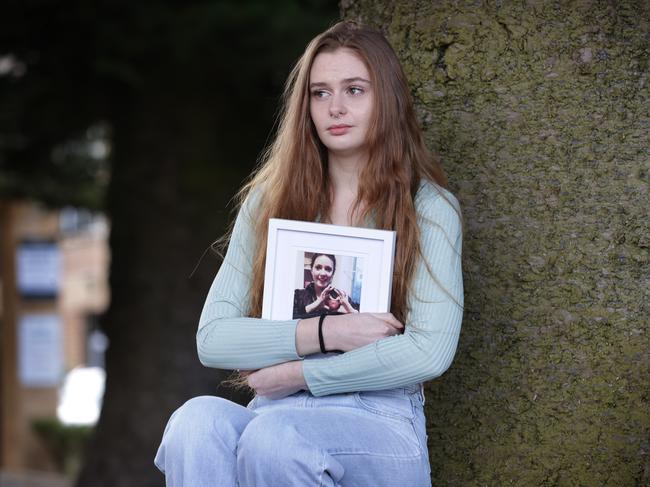
Currently it is a victim’s responsibility to apply to the Victorian Victims Register to be notified when a prisoner is to be released back into the community but Demi said this was not good enough.
Ms Trinca is pushing for victims of serious family violence offenders to be automatically registered to prevent future deaths.
She believes her sister wouldn’t have known the register existed and that the justice system must adapt with the understanding many victims of crime don’t know the services available to protect them.
“The system is ridiculous by making victims responsible for their own safety,” she said.
“It shouldn’t be up to them to put themselves onto the register – it should be done automatically on their behalf.”
Victims of Crime Commissioner Fiona McCormack agreed that the register must be reviewed.
Ms McCormack said many victims don’t know it exists and find it “highly distressing” when they learn they missed out on information fundamental to their safety.
“Research on the victims register suggests only a small proportion of victims actually use it.
Information such as the timing and conditions of release is so important to help victims feel safe,” she said.
“I think the government should review the victims register. We need to know why there’s such a low take-up rate and information on the pros and cons of opt-in and opt-out models. The government needs to find out from victims what they need from the scheme and particularly what they need in order to be safe.”
In 2022-23, 691 applications were made to the Victorian Victims Register.
Yet almost 209,000 victim reports were made to police across the state in the year to March, according to Crime Statistics Agency data.
Minister for Victim Support Enver Erdogan said the register in its current form enables victims of crime and their loved ones choose what information they want about a perpetrator and when.
“We know through listening to independent experts and victims that people having the choice to opt-in is important, because this can often be extremely triggering and distressing,” Mr Ergogan said.
“Our approach has always been informed by listening to and working with victims and their loved ones and that is what we will continue to do.”
Ms Curren-Trinca’s daughter was just two-and-a-half years old at the time of her death.
The day before she was killed, she told a friend she believed McDonough would kill her.
“My daughter needs me and you could easily take that away from her,” she wrote in a text to him days before she was killed.
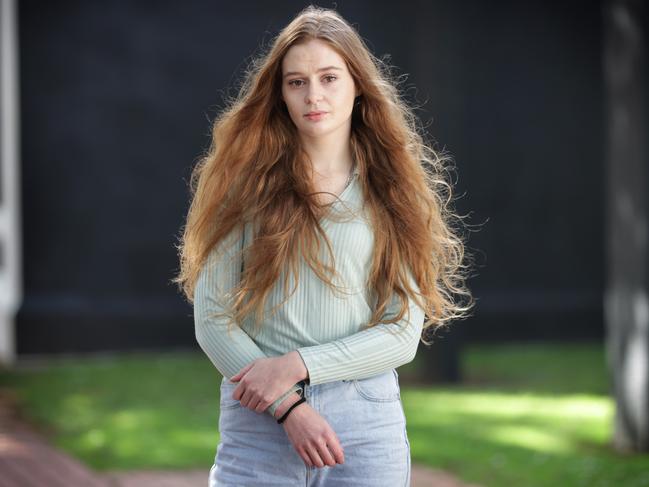
Doctors who tried to save Ms Curren-Trinca told her family her injuries resembled that of a car crash victim and “it was the worst case of domestic violence they had ever seen”.
McDonough had an extensive criminal history including previous family violence convictions.
He gained enormous control over Ms Curren-Trinca and would brutally assault her when she defied him over the course of their five-month relationship.
The young mum lived in a state of constant fear and actively sought help to escape.
In the days leading to her death, she was put into crisis accommodation by a local domestic violence service and when that was no longer an option, she moved to a local caravan park.
Eventually she could no longer pay to stay there and told her support worker she had no other option but to return to McDonough’s home.
Her sister said: “She had no other choice. She needed a roof over her head.”
Police charged McDonough with murder but it was later downgraded to manslaughter.
He was sentenced to a minimum of 8.5 years behind bars in June and could be freed as early as 2028.
Ms Trinca said before her sister was prevented by McDonough from seeing family and friends, she was a free spirit who’d always put a smile on others’ faces.
“She was hilarious. When I was young, I was anti-social and I would stay in my room, but she’d come in and dance and sing. She hated people being upset and would do anything to make them smile or laugh,” she said.
Now her family’s life is filled with unrelenting sorrow and concern for the future of her young daughter.
“Domestic violence is an issue that needs to be taken seriously. It is my hope that our family’s tragedy will lead to greater awareness and action to prevent domestic violence from claiming the lives of other innocent victims,” Demi told the Supreme Court of Victoria.
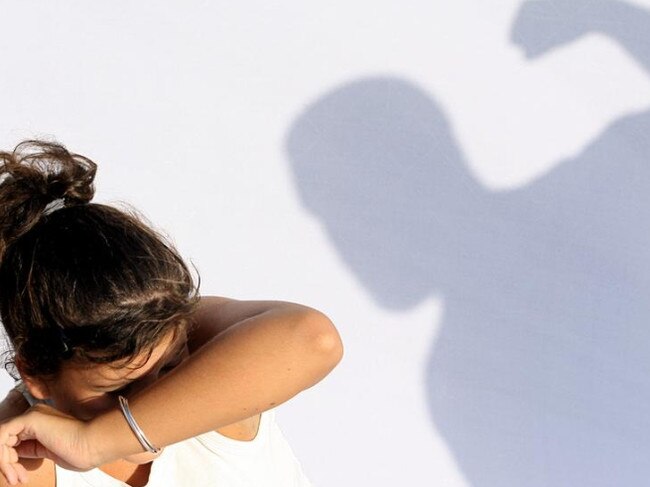
Dangerous home or the streets?
The cost of living crisis is forcing victims of family violence to choose between living in dangerous households or on the streets.
Financial pressure in households has never been higher, with interest rate rises, rent increases and the soaring cost of everyday expenses creating a pressure-cooker environment for a growing number of Victorian families.
Safe Steps, a 24/7 crisis response service for people escaping family violence, said the volume of requests by women for emergency accommodation jump between 20 to 30 per cent after each rate rise.
With the enormous lack of crisis housing available statewide, many women and children are left with a potentially life-endangering decision: stay in an abusive home or become homeless.
Family violence is the biggest driver of homelessness for women across the state, research shows.
Experts say preventing victims access to money or from making household decisions is a common control tactic used by perpetrators.
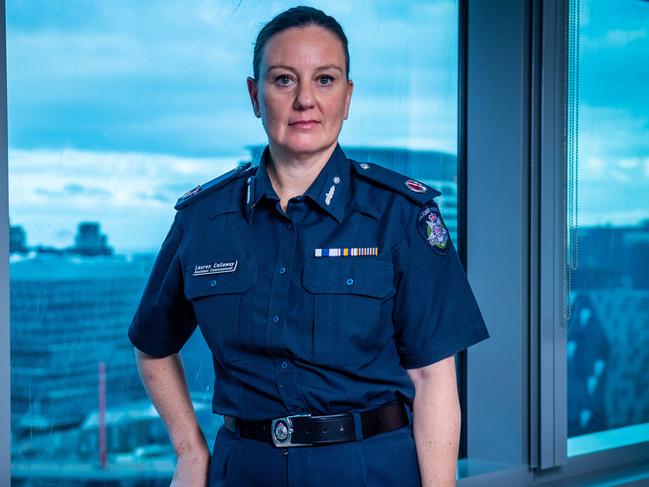
Assistant Commissioner for Family Violence Lauren Callaway said homelessness has become “a very real choice today for some families”.
“It’s not the environment at the moment with the cost of living to change homes easily,” she said.
“That cannot be done. So if victim-survivors make the decision to stay home, that can be difficult in regards to safety.”
Emergency accommodation providers have been forced to turn desperate people away due to soaring demands during the cost of living crisis.
Safe Steps chief executive Dr Chelsea Tobin said “there is absolutely not enough” crisis accommodation to meet the needs of people trying to escape violence in Victoria.
“A lot of crisis accommodation is provided by motels, which is not optimal, and no one ever intended it to be a long-term solution,” she said.
“Keeping up with demand has been our biggest challenge. We know that supported accommodation – where people have access to all the services they need to rebuild their lives – is the most effective way of breaking the cycle of violence.”
While the home should be the safest place for a person, for family violence victim-survivors, it is disproportionately the most dangerous, with the vast majority of offending occurring behind closed doors where no one else can see.
Flexible Support Packages are provided by the state government to support victim-survivors to remain safely in their homes and relieve the pressure on emergency housing providers.
The packages include installation of home alarm systems or CCTV cameras, locks and lock changes, repairs to broken doors and windows, security doors and screens.
“We know having a safe place to live can determine whether someone leaves or stays in a violent relationship, however no victim-survivor should be expected to leave home in order to be safe,” a government spokesperson said.
– With Mitch Clarke



